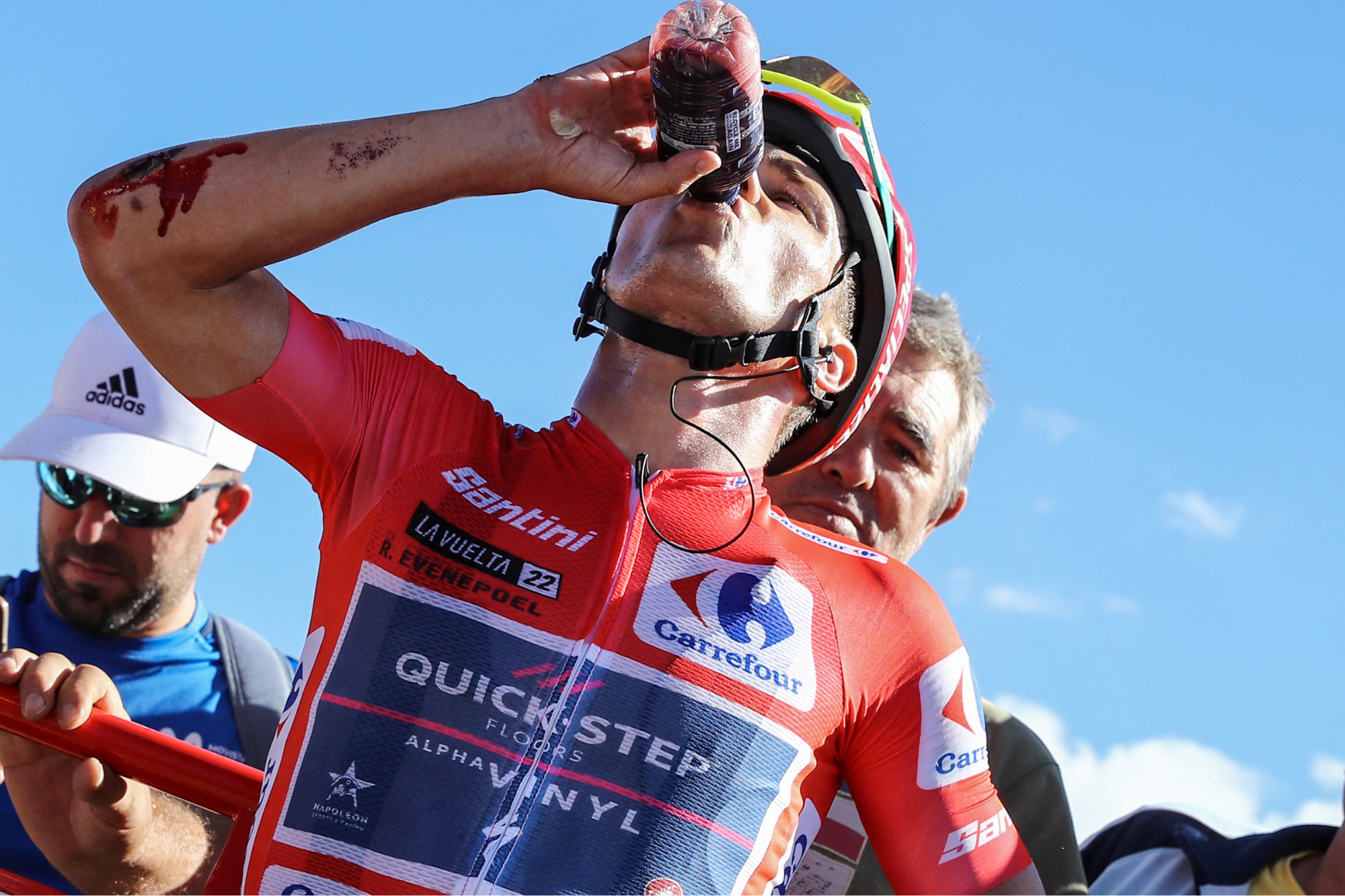Exclusive: UCI set to approve ketones use after four-year study
The news will prompt a mixed response in the peloton


The latest race content, interviews, features, reviews and expert buying guides, direct to your inbox!
You are now subscribed
Your newsletter sign-up was successful
The UCI is set to approve the use of ketone supplements in the peloton, after a multi-year study into the product has concluded that they are safe and do not offer a significant performance enhancement to users.
Ketones are naturally produced by the liver when the body burns fat instead of glucose for energy, and synthetic ketones have been on the market for almost two decades.
They are said to aid recovery, but the jury has been out on whether or not they enhance performance levels, with multiple studies in recent years producing contrasting results.
Used by at least half a dozen men's teams since at least 2018, and possibly first trialled as early as 2012, ketones have been a hot topic in professional cycling in the past decade, with many concerned that not enough is known about potential side effects and how much they improve performance.
In 2021, the UCI announced a scientific review into the supplement as part of the governing body’s “commitment to an honest and credible sport”. At the same time, they recommended riders to “refrain from using this substance”.
It was expected that the study would take two years to complete, but almost four years later the UCI has yet to communicate the result of its findings.
Multiple sources have told Cycling Weekly, however, that the final report is now complete, and the UCI’s management committee was informed of a “positive outcome” in recent weeks.
The latest race content, interviews, features, reviews and expert buying guides, direct to your inbox!
The Professional Cycling Council – a body that consists of teams', organisers' and riders' representatives – will be shown the full report in September, with the management committee expected to approve their use at the UCI World Championships in Kigali, Rwanda, in late September.
At last year’s Tour de France, the UCI’s president David Lappartient said: "The study we funded is progressing, but it is a scientific study, with researchers from international laboratories, publication processes, so it takes time," he said. "We should have the results next year."
Leading French riders Romain Bardet and Guillaume Martin have repeatedly called for ketones to be prohibited, while the Movement for Credible Cycling (MPPC) – a voluntary body that fights against doping and aims to improve the crediblity of the sport – recommends that its members do not use the supplement.
However, leading teams such as Visma-Lease a Bike, Soudal Quick-Step and Alpecin-Deceuninck all use ketones, with several teams even having official ketones partners. Most teams give their riders a free choice – they can take the supplements at their will, or refuse to.
In 2021, the UCI’s medical director Xavier Bigard was pessimistic that ketones did improve a rider’s physical capabilities substantially. “We have every reason to believe that ketones do not improve performance, but there are one or two points to be addressed: the dosage, i.e. the quantity ingested and the repetition of intake, and the type of ketone,” he said.
Another issue raised with ketone supplements is their cost: most cost around £30 per 25ml serving, with some retailing for more than double that price.
Javier Gonzalez, a professor of nutrition and metabolism at Bath University, told Cycling Weekly last year: “I do think the cost-benefit ratio [from ketones] is small,” he says. “Even if they do enhance performance, there are probably other, cheaper things that give you a bigger bang for your buck, at least based on what we currently know.”
Cycling Weekly reached out to the UCI for comment, but at the time of publication has not yet heard back.
A freelance sports journalist and podcaster, you'll mostly find Chris's byline attached to news scoops, profile interviews and long reads across a variety of different publications. He has been writing regularly for Cycling Weekly since 2013. In 2024 he released a seven-part podcast documentary, Ghost in the Machine, about motor doping in cycling.
Previously a ski, hiking and cycling guide in the Canadian Rockies and Spanish Pyrenees, he almost certainly holds the record for the most number of interviews conducted from snowy mountains. He lives in Valencia, Spain.
You must confirm your public display name before commenting
Please logout and then login again, you will then be prompted to enter your display name.
